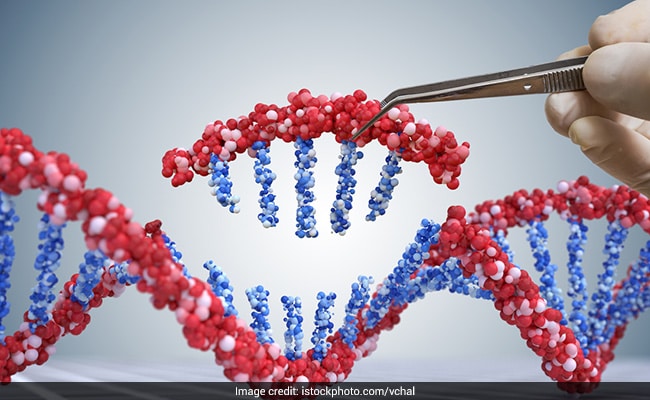2024-02-28 02:00:37

Union Jitendra Singh said many Indians are endogamous.
New Delhi:
Scientists on Tuesday announced that they have sequenced genomes of 10,000 Indians from diverse communities to create a database that could lead to gene-based remedies, with Union Science and Technology Minister Jitendra Singh calling it a watershed moment for science in India.
Addressing a function in the national capital, Mr Singh said genome study or sequencing is going to determine the future healthcare strategies across the world, both therapeutically and prophylactically.
He said there is a pressing need for finding Indian solutions to Indian problems as the country emerges as a frontline nation in the comity of scientifically-advanced countries.
Mr Singh lauded the Department of Biotechnology for the ambitious goal to identify and catalogue the genetic variations of diverse Indian populations by sequencing the whole genome of 10,000 healthy individuals from 99 communities, representing all major linguistic and social groups, across the country.
The Indian population of 1.3 billion consists of more than 4,600 population groups, and many of them are endogamous, he said.
“These factors have contributed to the genetic diversity of the current population. Thus, the Indian population harbours distinct variations and, often, many disease-causing mutations are amplified within some of these groups. Therefore, findings from population-based or disease-based human genetics research from other populations of the world cannot be extrapolated to Indians,” Mr Singh said.
Creating a database of Indian genomes means that researchers anywhere can learn about genetic variants that are unique to India’s population groups and use that to customise drugs and therapies.
The UK, China and the US are among the countries that have programmes to sequence at least 1,00,000 of their genomes.
Prof Y Narahari and Dr K Thangaraj, the joint coordinators of GenomeIndia, said beyond the sheer scale of sequencing and establishing a reference genome, the creation of a biobank housing 20,000 blood samples at the Centre for Brain Research, coupled with data archiving at the Indian Biological Data Centre, exemplify the project’s commitment to transparency, collaboration and future research endeavours.
The data is being stored at the Indian Biological Data Centre set up by Union government’s Department of Biotechnology at the Regional Centre for Biotechnology, Faridabad.
(Except for the headline, this story has not been edited by NDTV staff and is published from a syndicated feed.)
genomes of Indian population,genomes sequencing
Source link
![]()
